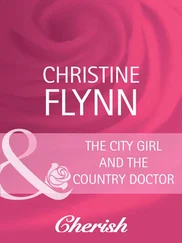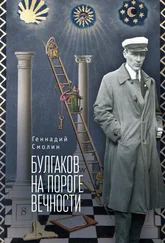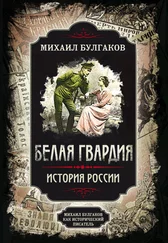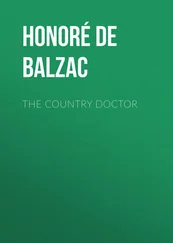‘Are these fire brigade horses?’ I asked through my sheepskin collar.
‘Oh-huh … huh …’ grunted the driver without turning round.
‘What has the doctor done to her?’
‘Well, sir, he … huh … trouble is, he’s only studied venereal diseases.’
The blizzard moaned through a copse, then lashed out, whistling, as we drove past the shelter of the trees. I felt I was swaying, swaying, swaying … until I found myself in the changing-room of Sandunov’s steam baths in Moscow—fully dressed, wearing my fur coat, and bathed in sweat. Then a torch flared up, the baths filled with cold water, I opened my eyes and saw a helmet shimmering in a blood-red glow. I thought there was a fire … then I blinked and realised that we had arrived. I was outside a white colonnaded building in the neo-classical style of Nicholas I. All around was pitch darkness, I was surrounded by firemen and a flame was flickering above their heads. There-upon I dragged out my watch through a chink in my fur coat: it was five o’clock. The drive had taken not one hour but two and a half.
‘Make sure at once that I have some horses to take me back,’ I said.
‘Very good,’ the driver replied.
Half asleep and feeling as damp under my leather jerkin as though I had been in a hot compress, I went into the hallway. Lamplight struck me from one side, throwing shadows on the varnished floor. A fair-haired young man with a haunted look came running out wearing trousers that had a freshly ironed crease. His white tie with black polka dots was askew, his starched shirt-front had come loose and was bulging out, but his jacket looked fresh from the tailors, brand new, with creases so crisp that they might have been cut out of metal.
The man waved his arms, clutched my fur coat and shook me as he pressed against me, moaning softly:
‘Oh, doctor … my dear fellow … quickly … she’s dying. I’m a murderer.’ He glanced aside, opened his eyes in a wild, tragic stare and said to someone: ‘I’m a murderer, that’s what I am.’
Then he broke into sobs, clutched at his thin, straggling hair and began pulling at it. I could see from the strands sticking to his fingers that he was literally tearing out his hair.
‘Stop it,’ I said and pushed his arm aside.
He was led away, and some women came running towards me.
My coat was removed, I was led over gleaming floors and into a room with a white bed. A very young doctor rose from a chair to greet me. His expression was agonised and distraught. For a second I caught a look of astonishment in his eyes as he saw that I was as young as he was. We were, in fact, as alike as two portraits of the same person; we were even the same age. Then he was so overcome with delight at seeing me that he even gulped for breath.
‘I’m so glad … my dear colleague … you see, her pulse is failing. The fact is I’m a venereologist. Thank God you came.’
Lying on a piece of gauze on the table was a hypodermic syringe and several ampoules of yellow oil. The sound of the clerk weeping could be heard through the door, which then closed as the figure of a woman in white materialised at my shoulder. The bedroom was in semi-darkness, a piece of green material having been draped half over the lamp. A face the colour of paper lay on the pillow amid the greenish gloom. The nose had begun to look pinched and sharp, and the nostrils were plugged with cotton wool that was pink with blood.
‘Her pulse …’ the doctor whispered to me.
I took the lifeless arm, applied my fingers with a now habitual gesture and shuddered. I could feel a thin, rapid flutter which broke off and picked up again as a mere faint thread. I felt the customary stab of cold in the pit of my stomach as I always do when I see death face to face. I hate it. I managed to break off the end of a capsule and draw the yellow oil into the syringe, but the injection was only a mechanical gesture and forcing the liquid under the skin of the girl’s arm was a waste of time.
Her lower jaw began to twitch as though she were choking, slackened and hung down; the body tensed under the blanket as though hunching with cold, then went limp. And the last trickle of her pulse faded away beneath my fingers.
‘She’s dead,’ I whispered into the doctor’s ear.
The white figure with grey hair collapsed on to the smooth blanket and fell across the body, shaking convulsively.
‘Hush, hush,’ I said softly to the woman in white. The doctor grimaced uneasily towards the door.
‘He has been tormenting me,’ he said in a very low voice.
Between us we arranged to leave the weeping mother in the bedroom, to tell nothing to anyone else, and to remove the clerk to a distant room. There I said to him:
‘If you won’t allow us to inject you with a sedative, we can’t do anything. You are distracting us and preventing us from working.’
Finally he agreed. Weeping quietly, he took off his jacket, we rolled up the sleeve of the smart new shirt he had bought specially for his engagement party and gave him a morphine injection. The other doctor returned to the dead girl on the pretext of attending to her, while I stayed with the clerk. The morphine worked sooner than I had expected. Within a quarter of an hour his maudlin laments became more and more incoherent, he grew drowsy, then laid his tear-stained face on his arm and fell asleep, oblivious at last to the weeping, the movement, the rustling and muffled sobs around us.
‘Look, my dear fellow, it’s dangerous to try and go back now. You could easily lose your way,’ the doctor whispered to me in the hallway. ‘Stay and spend the night here.’
‘No, I can’t. I must go at all costs. The driver promised that I would be taken back at once.’
‘They can certainly take you back, but you must realise …’
‘I have three typhus patients whom I can’t leave. I have to see them every night.’
‘Well, if that’s the case …’
As we stood there in the hall he diluted some spirit with water and gave it to me to drink, which I immediately followed by eating a piece of ham. I felt a warm glow in my stomach and my sense of depression was dulled a little. I went back into the bedroom for a last look at the dead girl, glanced once more at the clerk, left the doctor a capsule of morphine, wrapped myself up and went out on to the porch.
The horses stood hanging their heads as the storm whistled and snow lashed at their flanks. A torch flickered.
‘Do you know the way?’ I enquired as I wound a muffler across my mouth.
‘We know the way all right,’ the driver replied gloomily (he was no longer wearing his helmet), ‘but you ought to stop here for the night …’
The very earflaps of his hat told me that he would almost rather die than go.
‘You ought to stay, sir,’ added another man, who was holding the guttering torch. ‘It’s bad out there.’
‘Eight miles …’ I grumbled. ‘We’ll make it. I have patients who are seriously ill …’ And I climbed into the sleigh.
I confess I omitted to say that the mere thought of staying in that house of misfortune, where I was impotent and useless, was intolerable.
Hopelessly, the coachman sat down heavily on the driver’s seat, straightened up and gave a jerk as we moved off through the gateway at a smart pace. The torch went out as though it had vanished or been doused. A minute later, though, something else caught my attention: turning round with difficulty, I noticed that not only was the torch no more to be seen but Shalometyevo itself and all its buildings had disappeared as if in a dream. This gave me an unpleasant shock.
‘That’s pretty odd,’ I half-thought, half-mumbled to myself. I stuck my nose out for a moment, but the weather was so terrible that I stuck it in again. The whole world had been rolled into one bundle that was being buffeted in every direction at once.
Читать дальше
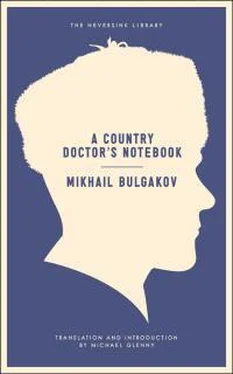
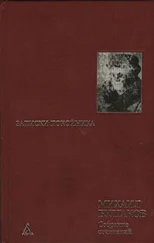
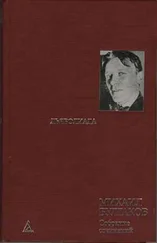
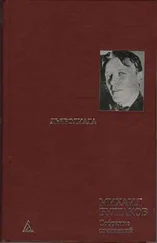
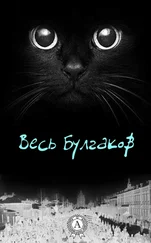
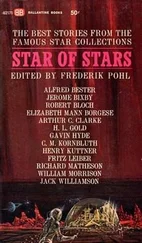
![Михаил Булгаков - Весь Булгаков [litres; сборник]](/books/400110/mihail-bulgakov-ves-bulgakov-litres-sbornik-thumb.webp)
